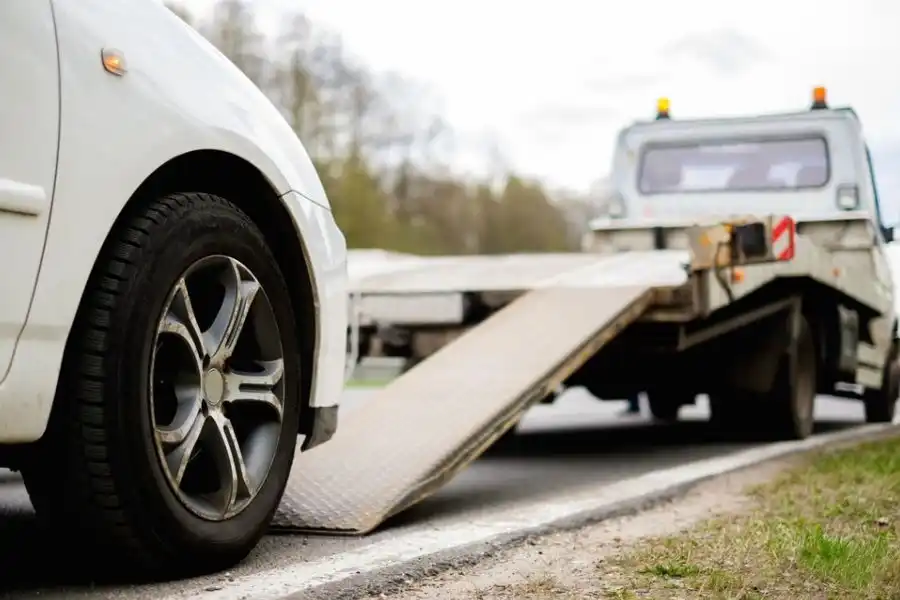The repossession of a car is a severe condition that often arises from not adhering to payment obligations. But what happens if a repo car is never picked up? This can happen for many reasons, such as confusion, incorrect handling, or process delays. That can have significant repercussions when the vehicle is abandoned or simply left uncollected by the owner.
In this article, we will investigate what might happen in such a situation. We’ll discuss the legal ramifications, the financial implications, and the effect on the repossession agency. You will also discover how storage fees, the owner’s rights, and alternative solutions may influence both the owner and merchant of the goods in question.
Key Takeaways:
- If a repo car is not picked up, the lender or repossession agency will likely incur storage costs.
- Legal action can be taken by the creditor to reclaim the car or recoup losses.
- The car owner may face further financial burdens if the car is not retrieved.
- Unresolved repossession can result in a negative impact on the owner’s credit score.
- There are alternatives to leaving the car uncollected, including negotiating with the lender.
Understanding the Repo Car Process: What Happens After Repossession?
Repossession happens when a borrower fails to make payments on their car loan, and the lender tries to recoup the vehicle. The process usually starts with a notice of default and then repossession of the car by the lender or a third-party agency. After a vehicle is repossessed, the next step is typically either auctioning off the car or returning it to the borrower if they pay their debt.
However, a repo car may in some instances not be collected by its owner, or simply will not be picked up for any variety of reasons. If you leave the car in the possession of the repossession agency, you need to know what they are going to do next.
Financial Implications for the Repossession Agency
Repossession companies incur storage fees, insurance, and administrative costs when a repo car is not claimed. That car will have to sit in a secure lot, which racks up storage fees very quickly. These charges can add up to the amount the borrower has to pay in total.
The repossession agency also may have to evaluate the condition of the car — including whether it can be resold or will be sold for scrap. This evaluation can take additional money, and the agency does not guarantee a full return on the car’s value when the case is prolonged.
Legal Ramifications of Uncollected Repo Cars
There are several legal issues; A car that has not been picked up after repossession. Generally, the lender or agency can sell the vehicle to recoup any debt owed. But if the vehicle is left behind and not picked up promptly, the lending institution is allowed to sue for possession.
In many instances, state laws specify how long a repossession agency must hold off on selling or getting rid of the car. Without action by the borrower, the agency may be legally able to sell the car at auction or, if necessary, dispose of it.
The Impact on the Borrower’s Credit Score
If the borrower fails to pick up the vehicle it can be detrimental to their credit score. But repossession alone already carries a sizable hit to credit. But when the car is left to rot, it can negatively impact the borrower’s credit position even more, particularly if the agency goes on to sell the car to recover its losses.
When a property is sold, the proceeds may not be enough to pay off the loan in full, leaving the borrower liable for the remaining deficiency balance. It also negatively impacts the borrower’s credit score and can potentially lead to legal action in the recovery of any outstanding balance.
The Burden of Storage Fees: How They Affect Both Parties
The most common result of a repo car not getting picked up is the accrual of storage fees. Repossession agencies often have a daily storage fee charged for having the car in their possession. These charges can quickly add up, costing even more on top of the debt itself.
Depending on the location and agency, average storage costs can be anywhere from $20 to $50 a day. If your car is stored in an impound lot, the company will generally also charge impound fees, which can drive up your total cost of vehicle repossession.
In either case, it can be a burden to the borrower, particularly if the vehicle isn’t reclaimed quickly. For the agency, ongoing storage without resolution can lead to the loss of revenue.
Alternative Solutions: What Are the Options for Borrowers?
If the borrower is in a situation where his repossessed vehicle does not receive a pick-up it is vital to explore alternatives. Below are some possible ways to address the issues:
- Negotiate a repayment plan or settlement with the lender
- Reclaim the car — If the car is still with the repossession agency, talk about what you need to do to get the vehicle back — that means enforcing the debt owed.
- SellSell the privately: If the borrower can’t afford to repurchase the car, selling it privately—or to get the car’s value and preferably doing so according to state laws—could be an option.
- Negotiate with the repossession agency: In some cases, repossession agencies may be willing to waive or even reduce storage fees or allow the car to be returned if the borrower can arrange a payment plan.
Either way, communication is vital. Putting off is to make a move or leaving the vehicle unrecovered will just surprise the case.
What Happens If the Car Is Abandoned?
Unless the repo car is just abandoned or left for too long, the repossession agency will probably take action to dispose of the vehicle. This could be through selling it at an auction or through scrapping it for parts.
The agency will apply the sale proceeds to pay for the repossession and any remaining debt. If the other party sells the collateral but the proceeds are insufficient to cover the outstanding loan balance, the borrower can still be liable for the deficiency balance.
In some extreme cases, the car could be deemed abandoned property and seized by the state if unclaimed for some time.
Conclusion
Even though a repo car is not re-purchasing it has terrible effects. In addition to incurring storage fees and facing legal proceedings, damaging your credit score can place you at a disadvantage for years to come. The best thing you can do is to take action— whether by negotiating with the lender, retrieving the vehicle, or looking for other options.
You can also tell them what you would potentially be able to offer them as an alternative to repossessing your property (see below for details). We hope you will read other articles related to this topic, including debt management, car loan types, and credit repair to learn more and empower yourself over your financial future.

